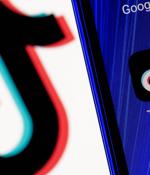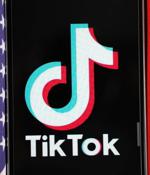Security News

The European Commission on Thursday banned the use of the TikTok short video app on corporate devices and on the personal devices of employees enrolled in the commission's mobile device management service. The commission's statement cites the need to protect staff from a rising number of cyber threats but fails to explain while TikTok was singled out.

Korean car-makers Hyundai and Kia will issue software updates to some of their models after a method of stealing them circulated on TikTok, leading to many thefts and even some deaths. The "Kia Challenge" started circulating in mid-2022 and explained that it's possible to remove the steering column covering on some Hyundai and Kia models by force, exposing a slot that fits a USB-A plug.

Faculty and students at the University of Texas at Austin this week became the latest members of a public US university to lose access to Chinese video app TikTok via campus networks. According to Neyland's email, the ban puts the university in compliance with a December directive issued by state governor Greg Abbott.

France's data protection authority has fined TikTok UK and TikTok Ireland €5,000,000 for making it difficult for users of the platform to refuse cookies and for not sufficiently informing them about their purpose. The €5 million fine was determined by the severity of the violations, including the number of impacted individuals, which include children, and the number of times CNIL had to repeat its warnings to TikTok on the need to adhere to France's Data Protection Act.

Popular short-form video hosting service TikTok has been fined €5 million by the French data protection watchdog for breaking cookie consent rules, making it the latest platform to face similar penalties after Amazon, Google, Meta, and Microsoft since 2020. The regulator said it conducted several audits between May 2020 and June 2022, finding that the ByteDance-owned company did not offer a straightforward option to refuse all cookies as opposed to just one click for accepting them.

The US government's New Year's resolution for 2023: no more TikTok at work. In an email to members and staff Tuesday, the Committee on House Administration banned the use of TikTok from House-managed mobile devices.

The US government's crackdown on TikTok continues, with the latest salvo being a bipartisan bill that would outright ban the popular social media app from doing business in the country. Several US states have already banned the app on government-owned devices, while Indiana has sued TikTok for inflicting harm on residents.

Two more US states have launched aggressive action against made-in-China social media app TikTok. "The TikTok app is a malicious and menacing threat unleashed on unsuspecting Indiana consumers by a Chinese company that knows full well the harms it inflicts on users," said AG Todd Rokita in a statement.

Public sector bans of Chinese platform TikTok on the grounds of national security have arisen in both Taiwan and additional US states following last week's ban in South Dakota. Last month, Taiwan's Mainland Affairs Council reportedly said the government has prohibited Chinese-funded corporations from operating online platforms in Taiwan and ByteDance does not operate a branch in Taiwan.

The governor of South Dakota issued an executive order on Tuesday banning the use of Chinese social media platform TikTok for state government agencies, employees and contractors on state devices. In a press release the state government said the order was in response to the growing national security threat posed by TikTok's data-gathering operations on behalf of the Chinese Communist Party.